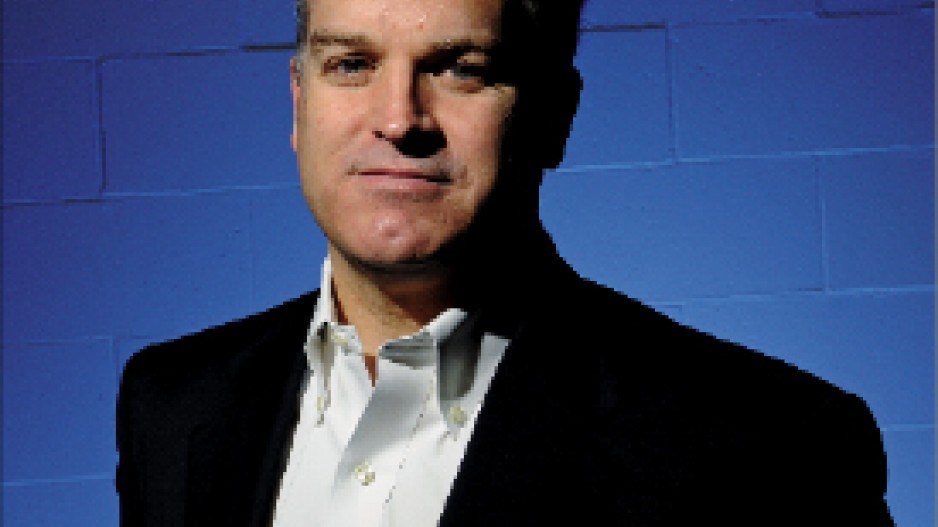From a sheer market perspective, Allon Therapeutics’ decision to focus on a rare a neurological disorder called progressive supranuclear palsy (PSP) doesn’t add up.
After all, only 20,000 North Americans have the disease, compared with 4.4 million Alzheimer’s victims, and the drug the Vancouver biotech company is testing in human clinical trials – Davunetide – might work in both diseases to repair brain damage. It also shows promise in Parkinson’s disease and schizophrenia.
Allon’s decision to focus its research on treating PSP with Davunetide has a lot to do with orphan drug policies in the U.S. and Europe that encourage companies to focus on rare diseases.
An orphan drug targets rare diseases.
“We sat back and said, ‘It’s nutty for a young company to think we’re going to solve those challenges [in Alzheimer’s] when Pharma hasn’t,’” said Allon CEO Gordon McCauley. “We said, ‘Let’s see if there’s some other disease indication out there where it might make sense to go forward, using the same drug.’”
Founded in 2004, Allon (TSX:NPC) is one of about 30 Canadian companies working in the orphan drug sector. Del Mar Pharmaceuticals is another orphan drug-focused company headquartered in Vancouver.
It’s lead product, VAL-083, is already approved for treating certain types of cancer in China. Del Mar is reprofiling the drug to be used to treat glioblastoma – a rare, aggressive brain cancer that affects only 15,000 people in North America, the most high profile of whom was the late American Senator Ted Kennedy.
The American Food and Drug Administration (FDA) recently approved VAL-083 as an orphan drug.
Orphan drug policies were crafted to recognize that pharmaceutical and biotech companies will not spend millions of dollars on clinical trials to get approval for a drug with a limited market. The FDA defines an orphan disease as one affecting fewer than 200,000 people.
The designation offers market exclusivity, fast-tracking approval and lower requirements for clinical trials.
“There are some pretty attractive orphan grants that are available,” adds Del Mar CEO Jeffrey Bacha. “It can be several million dollars. In addition, the fees that are charged by the FDA when you go to register your drug for approval are either delayed, reduced or waived altogether.”
Allon conservatively estimates the market for Davunetide for PSP to be worth $700 million because of the higher prices it would command, if approved, which is why the company decided to focus on PSP, not Alzheimer’s.
“We said, ‘This makes better scientific sense and better business sense,’” McCauley said. “Orphan drugs are generally priced much higher than market drugs.”
That doesn’t mean Allon isn’t focused on other possible uses for Davunetide. The drug is in various trial stages for other diseases as well, including Parkinson’s.
Allon has completed the first phase of preclinical studies for Davunetide in Parkinson’s disease and is now moving into a second phase, thanks to $625,000 in funding from the Michael J. Fox Foundation.
In a recent Life Sciences Report, JPMorgan Chase explained why rare diseases are becoming a major biotech growth driver in the U.S., where investors have been bullish on orphan drug companies.
The same can’t be said in Canada, which has no orphan drug policy.
As a result, said BIOTECanada CEO Peter Brenders, more than half of the orphan drugs approved for rare diseases in the U.S. and Europe are not available to Canadians.
It also means that Canadian companies have no incentive to stay here, once they have a commercialized product, which is one of the reasons BIOTECanada has been lobbying Ottawa and Health Canada to adopt an orphan drug policy.
“Canada is alone in the developed world when it comes to orphan products,” Brenders said.
“As these companies become successful, the question is how attractive is Canada to these companies? How to we make sure they keep their head offices here?”
He points to U.S.-based Alexion Pharmaceuticals Inc.’s recent $1 billion acquisition of Montreal’s Enobia Pharma Corp. – a company focused on rare diseases – as an indication of the interest in Canadian orphan drug developers.
“Canadian companies are very attractive,” Brenders said.
“The issue is how do they sustainably grow their business in Canada and – more importantly – how do Canadians get the benefit of this research?”
Applying to get an FDA-approved drug licensed for sale in Canada costs about $500,000 in fees. If there are only a handful of potential patients in Canada, Brenders said it might not be worth even applying to have the drugs approved here.
“It makes it very tough for a company to file half a million dollar submission and spend two years trying to get through that, and then face the next hurdle afterward, which is the provinces won’t pay for it anyway.” •




